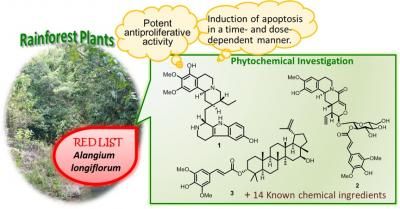Bright White: Organic acids prevent decomposition and discoloration of an antitumor agent
Advertisement
Would you want to swallow a tablet that’s yellow rather than its usual white? Would this effect be harmless and would the drug still be efficient? Researchers in India have now described an approach to maintaining the color and activity of an antitumor agent. As they report in Chemistry - An Asian Journal, acids can protect powders of the drug from discoloration and loss of activity.
The anticancer agent temozolomide is stable in the presence of acid, but when white tablets of the drug are stored for an extended period of time, they turn light pink or tan. This discoloration is indicative of degradation by water in neutral or basic conditions, which lowers the effectiveness of the drug, and has the potential to disconcert patients.
Ashwini Nangia and co-workers at the University of Hyderabad, India, have developed a method to increase the chemical stability of temozolomide and prevent discoloration. They made solids comprising temozolomide that is intimately mixed with an acid, forming so-called cocrystals. The acid effectively protects the drug from degradation, and the cocrystals showed no signs of discoloration for over six months, even in humid air. As acids, they chose safe organic acids such as acetic acid (found in vinegar), succinic acid (a fermentation byproduct) and oxalic acid (found in rhubarb). Preliminary assessment of the pharmacological properties of the cocrystals indicates that especially those incorporating succinic acid and oxalic acid could be suitable for use in formulation development.
Original publication
Other news from the department science

Get the life science industry in your inbox
By submitting this form you agree that LUMITOS AG will send you the newsletter(s) selected above by email. Your data will not be passed on to third parties. Your data will be stored and processed in accordance with our data protection regulations. LUMITOS may contact you by email for the purpose of advertising or market and opinion surveys. You can revoke your consent at any time without giving reasons to LUMITOS AG, Ernst-Augustin-Str. 2, 12489 Berlin, Germany or by e-mail at revoke@lumitos.com with effect for the future. In addition, each email contains a link to unsubscribe from the corresponding newsletter.


























































